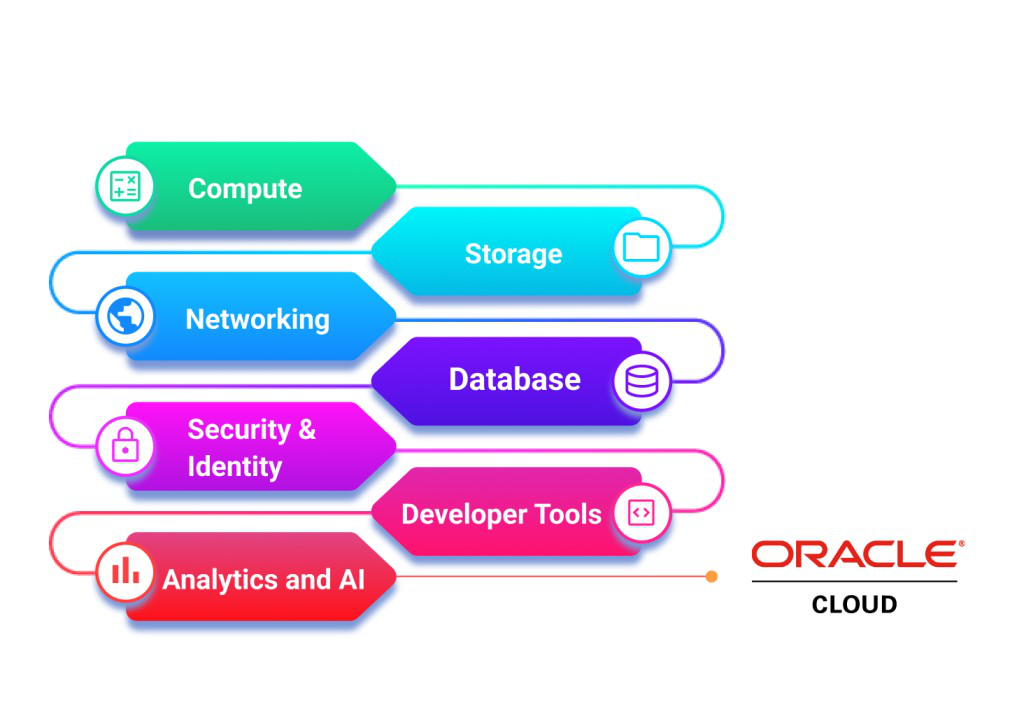Oracle and the Cloud: What It Means for Your Business

Introduction
The phrase “cloud transformation” has come a long way from being a buzzword to an existential strategy. In 2025, companies within high-density tech clusters such as Delhi and Noida are not only testing—re they going large on Oracle Cloud Infrastructure (OCI). As AWS and Azure hog public discussions, Oracle is silently emerging as the backbone of high-stakes enterprise systems in financial services, manufacturing, and government. If you want to remain competitive within this ecosystem, learning through an Oracle Online Course is no longer a nicety—it’s a necessity.
The Delhi city has experienced a significant surge in fintech advancements with firms embracing Oracle’s autonomous offerings to handle sensitive transactional information under rigorous compliance. Noida, by contrast, has emerged as a hub for medium-sized IT firms providing Oracle Cloud migration services, leading to the demand for experienced Oracle professionals skyrocketing.
Core Architecture of Oracle Cloud Infrastructure (OCI)
Oracle Cloud’s strength lies in how deeply it’s built around high availability, network control, and enterprise predictability. Its architecture is deliberately different from legacy cloud providers, making it suitable for large-scale enterprise workloads.
Here’s a quick breakdown of how OCI is technically structured:
| Component | Functionality |
| Virtual Cloud Network | Isolated cloud network with subnets, gateways, and route table |
| Availability Domain | Independent data centers in a region for fault tolerance |
| Fault Domain | Redundant rack locations within ADs |
| Bare Metal Compute | Direct hardware-level access for maximum performance |
| Block Volume | Replicated storage that detaches and reattaches to any compute instance |
| Autonomous DB | AI-powered DB that self-patches, scales, and tunes without human intervention |
This infrastructure enables ultra-low latency, deterministic IOPS, and multilevel security compliance—very appealing to regulated businesses.
Why Autonomous is the Future: Changing Roles of DBAs?
Oracle’s Autonomous Database is not only a managed service—it’s a completely autonomous system. You don’t manually configure backups or apply security patches. The database automatically detects performance irregularities, tunes queries in real-time, and scales resources according to demand.
Key features:
- Auto-patching: No manual intervention required for updates
- Auto-scaling: Automatically scales CPU and storage in real time
- Built-in ML models: Identify abnormal queries and slow trends
- SQL Notebooks: Supports inline analytics without external tools
Multicloud, Azure Interconnect & Hybrid Cloud Strategy
Oracle has transcended the one-cloud-fits-all philosophy. Its OCI-Azure Interconnect provides businesses with the strengths of both clouds. You can analyze in Azure and store data securely in Oracle Cloud—all with sub-millisecond latency between them.
Advantages include:
- Shared authentication with Azure AD
- Real-time data sharing among apps
- No charges for egressing data between Oracle and Azure regions
The Indian government’s Smart City Mission employs a hybrid approach in cities such as Delhi. Legacy applications execute on Oracle Cloud@Customer (deployed in private data centers), whereas data visualization dashboards are driven via Microsoft Azure. This hybrid model is now included in advanced modules in Oracle Training in Delhi, designed for IT consultants who operate state-level e-Governance portals.Noida
Real-World Cloud Migration: Not Just Lift & Shift
Enterprises that run Oracle applications such as JD Edwards, EBS, or PeopleSoft can’t simply migrate with containers. They need to be reconfigured in depth and sometimes replatformed. Oracle has various migration options:
- Zero Downtime Migration (ZDM): CLI-based tool for live migration
- OCI Data Transfer Appliance: For bulk data transfer
- GoldenGate Replication: Real-time replication with transactional integrity
These components make it possible for full-stack migration, such as DB, app tier, and middleware. In Noida’s logistics industry, companies are migrating core ERP workloads with these inbuilt Oracle tools—resulting in quicker deployment and zero data loss. Experts joining Oracle Training in Noida are more often now working on such high-complexity migration projects after certification.
Key Trends in Delhi & Noida: Cloud Through the Enterprise Lens
The tech environment in Delhi is now powered by AI regulation, regulatory technology, and cloud data regulation. Oracle Cloud, with its topology of high-trust architecture, is the choice for organizations developing systems for digital identity, tax regimes, and AI-powered public policy platforms. These initiatives require Oracle experts who can merge analytics and compliance processes.
Noida, which is a manufacturing and IT outsourcing hub, is more inclined towards real-time automation via Oracle Integration Cloud and IoT services. The largest change? Oracle developers here are doing more integrations for smart factories and IoT supply chains than ever.
Key Takeaways
- Oracle Cloud Infrastructure is designed from the ground up for enterprise workloads—high availability, low latency, and compliance-first.
- Autonomous Database redefines data management, where machine learning automates routine DBA tasks.
- OCI-Azure Interconnect enables strong multicloud configurations which India’s enterprises are already embracing.
- Migration to OCI demands intricate understanding of Oracle-native platforms such as ZDM, GoldenGate, and Data Transfer Appliance.
- Delhi and Noida are both hotspots for Oracle Cloud deployment—each with its own distinct technical trend fueling demand for experts.
- Courses like Oracle Online Course bridge these advanced skills gaps in part by concentrating on real-world applications.
Sum up,
Oracle’s role in cloud transformation is no longer a side note—it’s now front and center to how contemporary businesses transform. With autonomous services, hybrid offerings, and profound multicloud capabilities, Oracle Cloud is enabling cities such as Delhi and Noida to lead the way in technology innovation.
Organizations that were previously cautious are now doubling their bets, and experts are scrambling to keep pace. To be a part of this new Oracle-powered environment, upskilling is your best bet. Whether it’s intelligent governance in Delhi or IoT-enabled supply chains in Noida, Oracle Cloud is where the action is—and it’s just beginning.





